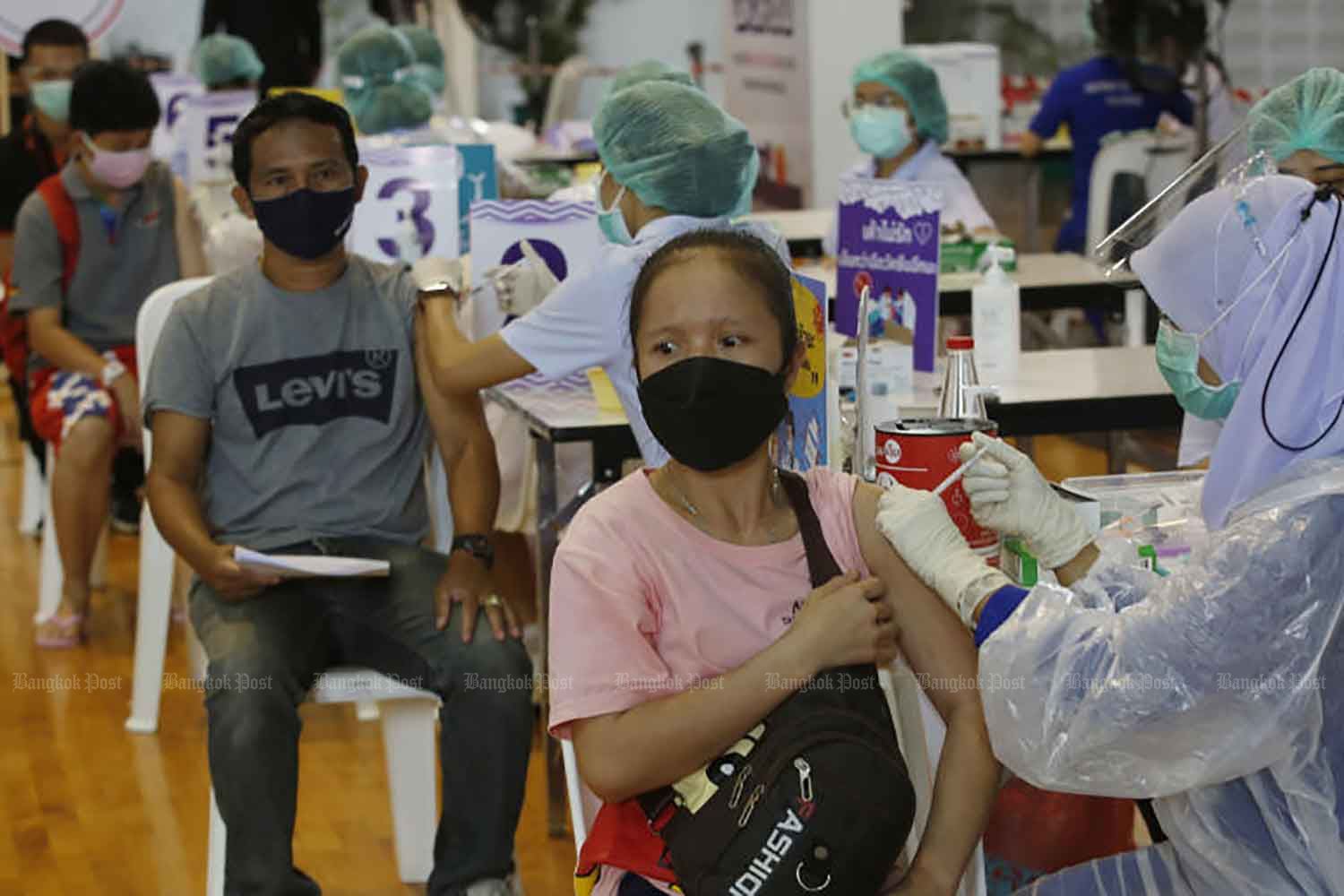
The research team behind the development of a local mRNA Covid-19 vaccine on Monday asked the government to help finance the project and relax regulations so the jab can be deployed before April.
Dr Kiat Ruxrungtham, leader of the research team behind Chula-VAC001, under the Chulalongkorn University's Faculty of Medicine, on Monday announced the vaccine's success in its first phase of human trials.
He said 36 out of 72 volunteers, aged 18-75, received the Chula-VAC001 vaccine and showed no serious side effects afterwards.
"It is also found that the ChulaCOV-19 vaccine has a high efficacy rate in preventing Covid-19 infections -- at 94%, the same as Pfizer's [vaccine]," Dr Kiat said. "Primary results [obtained] one week after the second dose showed that it has an 80% efficacy rate to build immunity to deter [coronavirus] variants such as Alpha, Beta, Gamma and Delta."
"After the significant success of our first-phase human trial, we expect to start the second phase on 150 volunteers next week," he said. "This time, half of them will get the Pfizer vaccine, so that we can compare these two mRNA vaccines."
He added that "Phase 2b" will follow in October with 5,000 volunteers using a combination of vaccines from overseas and BioNet Asia".
"It is a very good opportunity to test the efficacy of the Thai-made vaccine," he said.
However, he said the team currently needs government support, especially in terms of financial sponsorship, to allow the project to be properly run. It also requires supportive regulations from the government because a state-owned agency is not allowed to purchase products that have not completed clinical trials.
Dr Kiat noted the Food and Drug Administration (FDA) should ease its regulation on the use of Thai-made vaccines for emergency use.
"We will have received a clear direction from the FDA by next month," he said. "If we can go for Phase 2b, Thais can get the vaccine before our Songkran festival in April.
"If not, the plan will be further delayed," he said.
Dr Kiat said the vaccine could also be used as a booster shot for Thais, however, the team needs to see a clear management plan for next year.
Also, a research team from the Government Pharmaceutical Organization (GPO) launched the second phase of its egg-based vaccine on 250 volunteers aged 18–72.
The GPO hopes to produce 30 million doses annually starting in the middle of next year.
